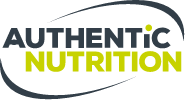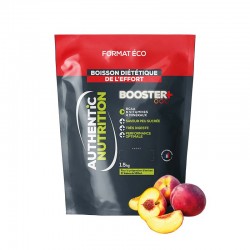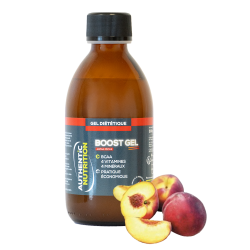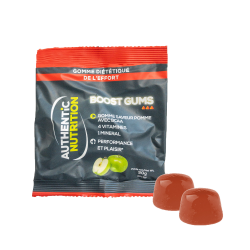Meeting with Ludovic Roussel, professional triathlete
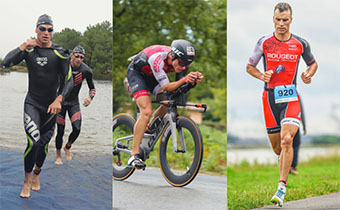
Ludovic Roussel
Can you tell us about your sport, triathlon?
It's an endurance sport that consists of performing three sports activities in sequence: swimming, cycling, and running.
The sequence is performed without outside assistance and without stopping the clock when changing disciplines.
As with athletics, there are different race formats. One of the most common is the Half Ironman, which belongs to the long-distance triathlon category.
Half Ironman in numbers:
1.9 km swim, 90 km bike ride and a half marathon, or 21.1 km on foot.
Average duration (at my level): 3h45 to 4h15
World record: 3h25
My personal best: 3h53
Triathlon has the image of a fairly extreme sport, but in reality, it is an accessible sport that allows you to have fun, outdoors, in a friendly and reassuring atmosphere. The XS formats (400 m swim / 10 km bike / 2.5 km run) allow you to start off gently.
What equipment does a triathlete need?
We are equipped with a tri-function outfit designed specifically to be able to perform the three disciplines without changing outfits. It looks like a wetsuit.
On the bike, we use time trial bikes. They have the particularity of being better suited to maintaining an aerodynamic position over long periods. The highest-end models are also more aerodynamic to minimize air resistance as much as possible.
The transitions between the three disciplines are obviously worked on. To save time, the shoes are already positioned on the bike and for the race, we wear sneakers with elastic laces.
What do you particularly like about triathlon?
It's the multidisciplinary aspect, the fact that it's an outdoor sport and that it involves technical skills.
What are the different competitions that exist?
There are three types of races: national, those organized by the Ironman company and those organized by the Challenge company.
The best known and most publicized are the Ironman. It is the Ironman company that organizes the world championships and not a federation as is the case in most sports.
France is a triathlon territory with a high level, one of the highest in the world. Thanks to its multidisciplinary nature and its "challenge" aspect, triathlon attracts more and more athletes. As a result, the French Triathlon Federation is experiencing strong growth.
France has four labeled Ironman events which take place in Les Sables d'Olonne, Nice, Vichy and Aix en Provence. The Frenchman label is also growing in stature and there are of course the legendary races of Embrun and Alpe d'Huez.
At the European level, there are the Ironman European Championships (they will take place in Hamburg in 2022) and the Half-Ironman European Championships which will take place in Elsinore (Denmark).
Triathlon has also been an Olympic discipline since 2000, with a unique format: the Olympic distance or M format with 1.5 km of swimming, 40 km of cycling and 10 km of running.
At the global level, the most legendary race is Hawaii. There are also other very well-known events in Lanzarote, Roth...
For my part, given my endurance qualities, I compete in long-distance triathlons, such as Half Ironman.
What are your results this season?
I haven't done many races this year because of Covid. Overall, it's a season that took a while to get going but in which I'm finally getting some good results!
- Chtriman in the north of France: 5th, beating the event record
- Geneva: winner in the M format
- Frenchman in Hourtin: 2nd, just 15'' behind the winner and a new personal best
- My first races as a professional were quite difficult. In the first race in Poland, I had to abandon for the first time, and in the second in Warsaw, I finished 15th/16th PRO, and I'm still hungry for more due to mechanical problems on the bike.
And your ambitions for next year?
I want to continue to progress on the professional circuit and gradually move into Ironman formats. I'm planning to do my first Ironman in 2022.
What is your routine? Does it vary between summer and winter?
I work throughout the year with my coach, Christophe Bastie. We work mainly remotely; he sends me a weekly training program. And I also do training camps in Saint-Etienne with his training structure and also camps with my club Rougeot Beaune Triathlon.
The year is divided into two parts:
- Winter preparation where I mainly work on basic endurance with long runs, lots of swimming, mountain biking but no road cycling.
- The competition period (from February/March): camps, less swimming but a lot more road cycling. Training intensity is more varied than in winter.
The average training volume for a triathlete of my level is 20-25 hours per week - excluding training weeks.
Don't hesitate to read our article "Running in winter: Our hydration and nutrition advice"
How do you manage your nutrition? Do you have any rituals?
I don't follow any particular diet, I eat everything and I don't overdo anything!
For workouts up to 1 hour, I don't eat anything in particular. But beyond 1 hour, I adapt my nutrition, especially for long bike rides (6-7 hours).
I consume an isotonic drink, low in sugar and easy to digest, the Authentic Booster +.
For running, I prefer energy gels, Authentic Gel Fluide, with the Eco-Pocket which is very practical and whose fluid consistency is easy to swallow.
For cycling, I regularly take Flapjacks because, unlike other brands or products, they allow me to feel truly full while having a taste pleasure.
And of course, I also consume fresh products like banana.
For long training sessions, I prepare one or more additional doses of energy drink (one dose of powder in a freezer bag or an individual 40g sachet) to refill my bottles along the way.
During training, I adopt a "forced routine", meaning that at most every 15 minutes, I hydrate and every 45 minutes, I eat. For competitions, this last time is reduced to 30 minutes.
This well-assimilated routine allows you to train your stomach and be ready on the day of the competition. Nutrition is a real performance factor, especially in an endurance sport like triathlon, which requires training, routine, and discipline.
Don't hesitate to read our article "Nutritional plans for a triathlon"
How do you adapt to the three disciplines?
Refreshments are planned for all races, but for the Half Ironman, I most often operate independently. On the Ironman, this is obviously not possible given the distances.
Before leaving, I take an energy gel or a waiting drink to fight the cold. I make sure not to arrive too early for a race and to stay active.
During the swim, I don't consume anything.
As soon as I get on my bike, I eat immediately and start my drink/food routine (usually 3 bottles of drink).
During the run, I take one or two Eco-Pocket of Authentic Gel Fluide and I drink a little water or drink at aid stations to help "make the gel flow".
Don't hesitate to read our article "What to eat before a race"
Do you have any advice for triathletes who are just starting out?
The mistake we make too often in sports in general is wanting to go too fast or wanting to put in too much intensity. Thinking: intensity = quality is a mistake! Of course you have to vary your efforts, but the basis of everything remains fundamental endurance. Kenyans run at 9km/h in recovery!
In a lifestyle where we are always looking for more immediacy and ease, sport has the virtue of reminding us that the natural order of things requires patience. It forces us to be humble and we must accept that progress takes time. Do things little by little. Based on this observation, I think that the contribution of a competent coach is essential at all levels to avoid mistakes.
On a mental level, I think the main qualities are assiduity and regularity. Being motivated and being self-disciplined are two different things. You have to do things thoughtfully and adapt your training to your abilities. Accepting your level and being realistic about your abilities is the basis for steady progress. It will allow any type of athlete to maximize their potential while having fun and staying away from injuries.
Interview by Aurélie Joubin on October 21, 2021
Don't hesitate to take a look:
- our FAQ to learn more about our brand Authentic Nutrition, our products and our ingredients.
- All our ambassadors
- Our nutrition tips and our recipes perfect for triathlons
- Our nutritional plans for a triathlon, for running, for cycling or trail
